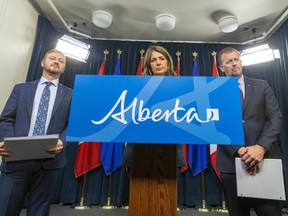I decided that Pierre Poilieve was a nasty piece of work when he was casting aspersions on the character and credibility of the former Governor General of Canada, David Johnson. When Johnson was tasked with investigating claims of foreign interference in Canadian elections, Poilieve attempted to discredit him with sleazy, spurious, guilt-by-association claims that he was susceptible to corruption because he and Justin Trudeau owned neighbouring cottages.
Talk about karma!
After his having made such a fuss about foreign interference in Canadian elections, CSIS (Canadian Security and Intelligence Service) now has evidence that Poilieve's Conservative leadership campaign received illegal funding from India. Poilieve could have been informed of what CSIS discovered and gotten in front of the accusations but, to everyone's mystification, Poilieve has refused to go through the process of getting security clearance which would allow him to access intelligence gathering. Poilieve's justification for refusing to get security clearance is so profoundly dumb, it is difficult to fathom. In a nutshell his argument is "ignorance is truth" (a slogan from the novel 1984?). He is attempting to claim that he would not be able to be honest and transparent with the Canadian electorate if he had access to top-secret intelligence. He can only be honest if he remains ignorant. He can only tell the truth if he doesn't know what he is talking about. (Read those sentences again. I wrote them, and I don't get it.) Poilieve couldn't possibly do a better job of creating the impression that he has something to hide than refusing to be vetted for a security clearance.
Then There's the double standard!
Poilieve brushes off the fact that his leadership campaign received illegal foreign funding with the claim that he won the nomination “fair and square.” When Han Dong's campaign for the Liberal Party nomination in his riding was accused of getting support from China, Dong was forced out of the party, his political and personal reputation ruined . . . and he has received death threats. The accusations against Dong remain unproven. Poilieve, despite proof of foreign interference in his nomination campaign, has waved off the accusations as being of no consequence.
Then There's fentanyl
When Donald Drumph launched his trojan-horse claims of fentanyl crossing the border form Canada into the USA (yes, yes, we all know now that more fentanyl moves the other way), Poilieve tried to jump on that horse-drawn bandwagon by announcing that he would impose mandatory sentences of life in prison for anyone caught with 40 milligrams of fentanyl. Do you know how small a milligram is? Fentanyl is an incredibly powerful and easily produced synthetic drug. (The Reuters web page explains what we should know and need to know about fentanyl.) Two milligrams of fentanyl is a potentially lethal dosage The drug is deadly, but the campaign promise came across as flawed, failed opportunism pandering to Donald Trump.
Then there's Carney
With the change in Liberal leadership, a new Prime Minister, and a new political opponent, it seemed that Poilieve's existence had lost its meaning. Slowly he came to realize that changing the names from Trudeau to Carney, accompanied by satanic-looking videos of Carney awash in red just weren't going to cut it, he pivoted back to the guilt-by-innuendo that he had used to discredit David Johnson. Poilieve announced what he hoped would seem a scandalous revelation that when Mark Carney was a private citizen representing Brookfield, the Canadian asset management company (Poilieve holds investments n the same company by the way), Carney visited the vice-president of the Chinese central bank, "two weeks later Brookfield got a quarter-billion-dollar loan." There are only two possible interpretations of these scandalous revelations: 1) these two events happened one after the other and are completely unrelated or 2) Mark Carney has shown that he can negotiate a deal with China, Canada’s second largest trading partner, which is beneficial to Canada and Canadians. Who is Poilieve campaigning for? Then he uses the press conference (above) for some out-of-date China bashing. Is Poilieve seriously trying to escalate our trade war with China while we are in the midst of a trade war with the USA?
Listening to Poilieve trying to spin yet another conspiracy theory, it occurred to me that maybe this is the advantage of not having a security clearance. Since he doesn’t know anything, he can just make stuff up without being accused of lying.
Then the worst happened: Danielle Smith
If nothing else sinks Poilieve’s campaign, Danielle Smith’s attempt to support him by telling Breibart News that Poilieve is “in sync with the new US administration” should do it.
Signs of Desperation
I can’t think of anything more desperate than the Conservative campaign’s attempt to turn a sound bit of Trump describing Poilieve as acting “stupidly” as evidence that Poilieve is the man we want as Prime Minister.










